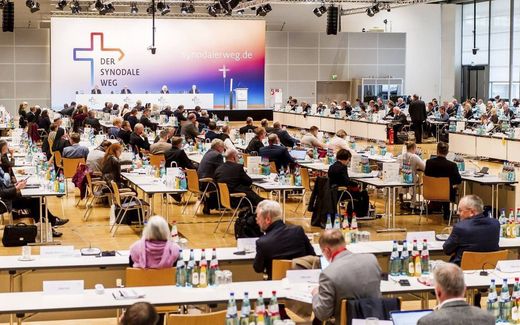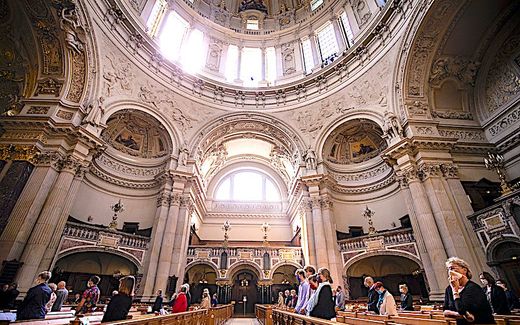German politician pleas for abolishment of church taxes

Photo ANP, Lex van Lieshout
Central Europe
To make the church more attractive, churches in Germany should withdraw from state funding and abolish church taxes.
This is what Lucia Puttrich, a deputy chairwoman of the Christian-democratic CDU in Hesse, thinks. She suggests putting an end to church taxes. This could be a way to "counteract the alienation of church leaders from their members", she writes in a guest article for the media company VRM. The Catholic politician says to fear the future of her church.
In countries with different financing structures for churches, such as Austria or Italy, the congregations are often "livelier, more innovative and younger." They need to do more to reach out to their church members. The current system brings churches "unique revenue despite millions of lost members," Puttrich wrote. This was reported by broadcaster Hessenschau.
Surprising
The SPD parliamentary group reacted with surprise to the proposal. "It's remarkable when a CDU minister calls for the abolition of the church tax in passing," said Nina Heidt-Sommer, parliamentary director of the SPD parliamentary group.
Dissolving the state treaty based on which the tax authorities collect taxes "would be a major project". Above all, however, one must secure the existence of church institutions such as kindergartens, schools and clinics. "It would be interesting to find out what the rest of the state government thinks of the very surprising but poorly thought-out initiative by the CDU minister," said Heidt-Sommer to Hessenschau.
Payroll
In Germany, registered believers –whether they go to church or not– pay a church tax of 8 to 9 per cent (depending on the state) of the payroll tax. Employers transfer this directly to the tax authorities, which transfers that amount to the employee's church.
The church spends most of the money on personnel costs. Churches receive state benefits for social facilities such as hospitals and childcare.
Why is the German government doing this for the churches? She gets paid well for it. According to a Dutch centre of excellence, the Duitslandinstituut, churches pay 2 to 4 per cent of the revenue to the tax authorities for these services.
Differently
Germany is the only country where the state is directly involved in church taxes. Austria and Italy do have church taxes, but it is organised a bit differently. This explains Katholisch.de. In Austria, the contribution is not collected by the state but by the dioceses themselves. In Italy, the state does collect some church tax. However, every taxpayer is completely free to decide in their tax return whether to allocate a 0.8 per cent either to the state or to one of the twelve religious communities that currently have such an agreement with the state.
Related Articles






